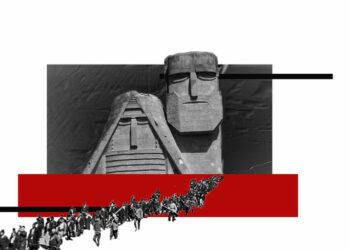Unveiling Turkey’s Dark Past and the Roots of Denial
There are a number of factors rooted in fear behind Turkey’s ongoing denial of the Armenian Genocide. These not only perpetuate the trauma of genocide but also impede any prospect for reconciliation. Historian Suren Manukyan explains.










